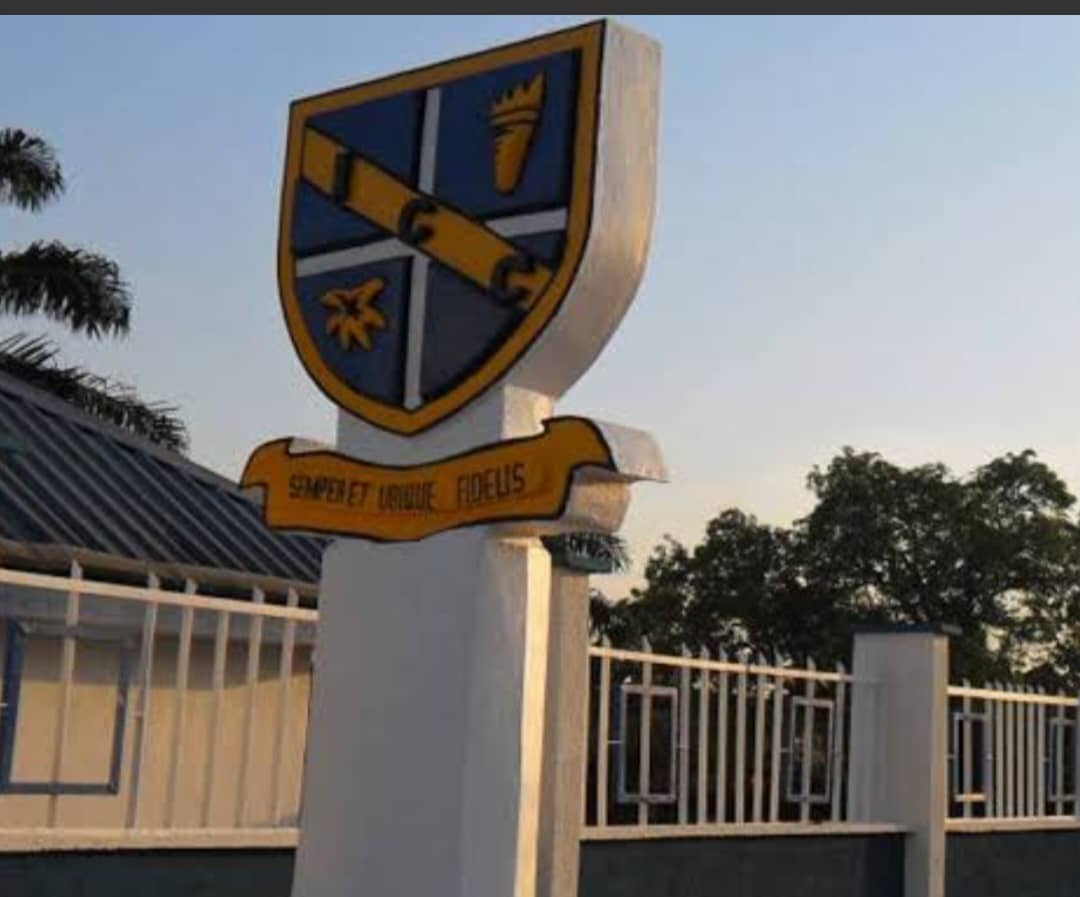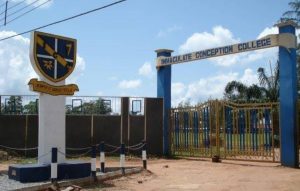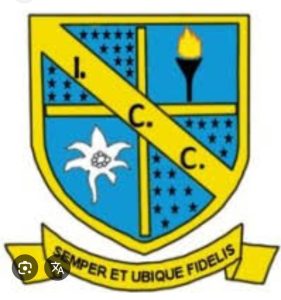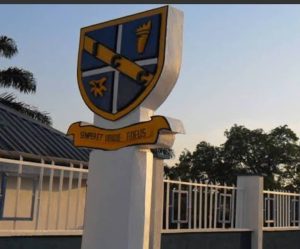News
OGUN GO KILL UNA!

*By Tunde Olusunle
Joseph Odidi Itotoh, the legendary educationist who raised my generation at the famous Immaculate Conception College, (ICC) in Benin City, was notable as a thoroughbred teacher, an uncompromising disciplinarian and a school administrator *par excellence.* He received us, enthusiastic little boys, into the luminous premises of the institution in September 1975. He would subsequently guide us with paternal commitment through five most impactful years of our lives as teenagers, which largely shaped our personalities and perspectives. As against the extant practice where school principals were reposted every two or three years, Itotoh was retained in ICC for 10 full years by the Midwestern, and later Bendel State governments. This underscored official acknowledgement and appreciation of his revolutionary exploits in the institution.
Itotoh led a multiracial team of dedicated teachers and instructors to provide world class education and instruction to us. Irish, Indian, Pakistani, Beninoise and Togolese teachers collaborated with their dutiful and committed Nigerian colleagues to set us up on solid foundations in life. The academic session just before Itotoh’s advent, the institution posted an uninspiring below 50 percent pass in the West African School Certificate, (WASC) O’Level examination. The sleepless Itotoh pursued an uncommon reformatory project to radically reposition ICC. By his third year in office, the school was brandishing a 100 percent pass performance sheet. This implied that the least performing students earned a minimum *Division Three* pass. This could get them into some polytechnics or colleges of education, while taking remedial courses to make up for foundational deficits.
We could almost swear that Itotoh deployed supernatural enablements in the discharge of his assignment. He lived in the principal’s house within the school premises. The cute bungalow sat on a small elevation at the back of the school acreage, abutting a section of the famous *Benin moat.* There were localised myths and fables around and about the moat which kept us in awe and trepidation. A certain midget-spirit, *useku* it was alleged, appeared from the moat from time to time from the direction of the moat. It reportedly scared and terrorised those it found at wrong places late at night! Itotoh had the entire topographical and geophysical map of the school on the lines of his palms. He toured the entire expanse of the school virtually everyday, holding his famous whip to keep errant students in check. On his night patrols, Itotoh would beam his torchlight straight in your face if he found you loafing around, simultaneously calling out your name. He knew the names of each and every student in ICC. Students of *Bini* origins among us usually whispered in hushed tones describing him as *ovbi azen,* son of a witch!
Itotoh studied English at the University of Ibadan, (UI) and obtained his masters and doctorate from the same institution. Such was the depth of his immersion into self-development as far back as those years. He would serve as education commissioner in the 1990s and as Minister of State for Internal Affairs during the second term of the President Olusegun Obasanjo milieu. Such was the quality of Itotoh. With deep roots in the English language, it was understandable, he had total resentment for the deployment of pidgin English and indigenous languages under his watch. This was as he strove to mitigate the pollution of standard English by other forms of the language in our young and impressionistic consciousness. There was substantial compliance with this *fatwa* especially with the reinforcement of Itotoh’s “commandment” by prefects on various briefs, who themselves were students. I was the prefect in-charge of *Bishop Kelly House,* for instance and we prided ourselves as the largest and neatest house, ever dominant in academics and sports. At our level as teenagers therefore, we had begun to take preliminary lessons and tutelage in leadership and responsibility. We all are the better for it today.
Most of us students in our time resided in Benin City with our parents or benefactors. During midterm breaks and holidays, we stayed in that historic city which is swaddled in so much mythology. It was a very robust melting pot and we experienced the pulse and dynamics of the sociocultural space. Pidgin English was an inevitable median between the various tongues, and the conventional English language. Our pidgin English lexicon was regularly enriched courtesy of borrowings by “broken” English, as some prefer to christen it, from the dominant indigenous tongue. I recall the admission of the *Bini* expression *you go see Oba* into modern pidgin English during my sojourn in Benin City. That phrase is an original *Bini* contribution to the lexicon of contemporary pidgin English. Royalty and *Oba-ship* are ensconced in mystique, in *Bini* cosmology. The *numero uno* royalty in Benin kingdom is the *Oba.* He is addressed and serenaded with jaw-breaking prefixes before the announcement of his name.
He is therefore the: *Omo N’Oba N’Edo Uku Akpolokpolo,* before the preferred appellation of the incumbent monarch is mentioned. *Oba Akenzua II* was in office in my years in Benin City but was succeeded by *Oba Erediuwa II* just before I left. The *Oba of Benin* sparingly makes public appearances. Except of course during specific traditional events in the *Bini* traditional calendar. He is equally seen in public when he receives high ranking dignitaries who seek to pay homage to him when in his domain. The *Oba of Benin* will not be found in places or events capable of denigrating his office as prime monarch-spiritual leader of his people. Seeing the *Oba,* therefore is a tortuous, tedious labyrinthine excursion. Rabble-rousers are therefore admonished not to court the kind of entanglements which will precipitate a figurative quest for the pardon of the *Oba* who will be hard to access.
Swear words and expressions were also common on the streets during our growing up years. Such invectives range from the peripheral, maybe pedestrian, to the presumably more potent, vile and vicious. Some verbal missiles indeed deliberately and intentionally appropriate deep traditional motifs for desired potency and rapid action. *Ogun,* the dreaded Yoruba god of iron and metallurgy occupies the same podium and reverence in *Bini* epistemology. Because of its potential for instantaneous and efficacious destruct, *ogun* is dreaded and venerated in *Bini* cosmology. The invocation of *ogun* in adjudication in a contestation, is taken very seriously by sections of the *Bini* nationality. Most will prefer any other form of verbal deployment in the course of an altercation, to the invitation of *ogun* in *Bini* culture.
This video of metal joints and other components on the *Second Niger Bridge* has been trending in the last few days. A concerned Nigerian recorded the site of the excavation of heavy metallic components of the face of the bridge from a point which in engineering is referred to as the “expansion joint.” Much as the narrator spoke in *Igbo,* we can piece together the fact that the crime is associated with sellers of scrap metals in Anambra State. They are those he described in the narrative as dealers in “iron condemned,” headquartered in Onitsha and its environs. You couldn’t but be thoroughly exasperated watching that clip. Just days before, I had gotten into a robust but civil engagement with a gentleman on some platform on a related issue.
There was a news item to the effect that police outriders will henceforth patrol the *Third mainland bridge* in Lagos which has been serially vandalised by thoughtless vagrants. It was recently rehabilitated at great cost by the federal government and will henceforth be on regular police surveillance. My point in the banter with the person in question was that monitoring the bridge will be better and more sustainably done by deploying technology. This is what is needed in the protection of our prized national assets including our oil pipelines which are eternally at the mercy of a hydra of rogues. My sparring partner reminded me that regular, physical security presence on the bridge will also discourage many people with suicide propensities, who seem to prefer the *Third mainland bridge* as guillotine.
Tears cascade down one’s cheeks when you imagine the depth of the destructive propensity, the anti-development disposition of some Nigerians. They are those we least believe harbour criminal intentions in any form. Have we forgotten how a syndicate in Abuja engaged freelance garbage workers to steal virtually all the metal coverings of manholes on the streets of Abuja? The CCTV cameras on a particular Abuja avenue showed the driver of a *Toyota Sienna* van, hauling his loot into his open space van in one such operation. Just weeks ago, military personnel on guard duties at the *$19 Billion,* ultra-modern *Dangote Refinery* in Lagos were arrested stealing cables from the newly minted pride of Africa. They aimed to render prostrate the behemoth of an industrial complex even before it commenced operations. These are the kinds of Nigerians our system has bred, the vampire *Babylon system,* to quote the great reggae idol Bob Marley.
Nigeria’s President, Bola Tinubu has a lot on his chest. He asked for the job, anyway. While poring through the files and folios of the variegated problems on his desk, the preservation of multibillion dollar national investments requires speedy attention. Tinubu has shown himself a taskmaster on certain issues like the lightning speed with which he requested a new minimum wage template from his finance minister, Wale Edun and the jet turnaround time with which the document was reverted. Tinubu urgently needs a road map for the preservation of those possessions which guarantee our national lifeblood. As we urgently anticipate that compass from the desk of the President, let me invoke the famous curse: As many as remain in the business of undermining this nation country, *ogun go kill all of una!*
*Tunde Olusunle, PhD, is a Fellow of the Association of Nigerian Authors, (FANA).*



News
New Pope: Meet American Cardinal considered a top contender

There has been little appetite historically among the College of Cardinals for the idea of a pope from the United States, a global superpower. But this conclave could be different.
Two possible papal contenders from the United States are receiving consideration, including Cardinal Joseph Tobin, archbishop of Newark, New Jersey.
At 72, Tobin’s ecclesial resume is a full one — built predominantly outside of the United States, which might ease concerns by those wary of an Americentric papacy.
Born in Detroit, the oldest of 13 children, Tobin joined the Congregation of the Most Holy Redeemer, better known as the Redemptorists, and was ordained a priest in 1978.
The Redemptorists often describe themselves as “kitchen priests,” meant to convey their willingness to get their hands dirty and not shy away from messy situations, be it in geopolitics or personal lives. Tobin, who had worked for a while as a car mechanic, seemed a natural fit for the order.
After pastoral stints in Detroit and Chicago, Tobin quickly ascended the ranks within the Redemptorists, where he eventually elected for two six-year terms as the order’s superior general, from 1997 to 2009.
Although based in Rome, his missionary work as the head of the worldwide Redemptorists order took him to more than 70 countries around the globe to assess firsthand the situation of the then-5,000-plus member order. These travels — combined with his later Vatican service — means he remains a known quantity to many priests and bishops, especially in the developing world. Moreover, he’s a gifted linguist, speaking (in addition to English) Italian, French, Spanish and Portuguese.
In 2005, he participated in the Vatican’s Synod of Bishops on the theme of the Eucharist, where he met Cardinal Jorge Mario Bergoglio of Buenos Aires, Argentina. Tobin would later recall that he told the future Pope Francis that his mother was disappointed that Bergoglio was not elected pope in the 2005 conclave that elected Pope Benedict XVI. Bergoglio was reported to have been the runner-up at the time.
In 2010, Benedict appointed Tobin as the No. 2 at the Vatican’s Congregation for Institutes of Consecrated Life and Societies of Apostolic Life, an office responsible for overseeing the roughly 2,500 religious orders, congregations and institutes around the world.
Tobin’s tenure in the department, however, was unusually brief, as he challenged the office’s treatment of the Leadership Conference of Women Religious, an umbrella group representing more than 300 religious women congregations in the United States.
Tobin’s office conducted an official “visitation” — an investigation — into the sisters group as part of the Vatican doctrinal office’s crackdown on its theological orthodoxy. In the process, Tobin became known as a vocal defender of the religious sisters and lamented their treatment by the Vatican.
“He tried to help the Vatican understand the experience of U.S. women religious,” said one sister involved in the process, who spoke to NCR on the condition of anonymity. “It was risky to do this as the new kid on the block and he paid a high price.”
His willingness to buck the system made him a hero of women religious, but put him on the outs inside the Vatican. In October 2012, Benedict exiled him back to the United States to become the archbishop of Indianapolis.
His ecclesial career may have ended there if it were not for the shock resignation of Benedict just six months later and the papal election of Tobin’s old acquaintance from the 2005 synod.
In October 2016, Francis announced that he was elevating Tobin to the College of Cardinals, marking the first time in its history that the small archdiocese of Indianapolis would have a cardinal.
Shortly thereafter, in November 2016, it was announced that Tobin would be transferred to Newark, New Jersey, again marking a first for a city that is a non-traditional cardinalatial see.
In the years that have followed, Tobin has become a leading voice in favor of Francis in a deeply divided U.S. hierarchy, many of whom are considered to be out of sync with the pope’s pastoral agenda.
His affable style and easy humor has won goodwill among the majority of his brother bishops, including those who are not considered to be ideological allies. Still, that wasn’t enough to win a crucial 2022 vote for secretary of the U.S. bishops’ conference; Tobin lost the bid for the No. 3 position in the conference to a much more conservative candidate.
Here In Rome, Tobin is almost a monthly visitor in his capacity as a member of three Vatican offices:
The Dicastery for Bishops, a body responsible for advising the pope on bishop appointments;
The Secretariat for the Economy;
The General Secretariat for the Synod.
All three are considered to be some of the Vatican’s most high-profile departments, meaning he knows how the institution works (and doesn’t).
When in town on Vatican business, he prefers not to lodge inside the Vatican’s hotel for visiting clergy, where Francis also lived, nor at the North American College, the residence of U.S. seminarians studying in Rome where many visiting American bishops stay. Instead, Tobin chooses to stay across town at his old home at the Redemptorists’ headquarters, where he is known to take the metro or bus to get around town.
If members of the College of Cardinals are looking for a candidate who shares Francis’ pastoral instincts that prioritize mercy, Tobin might be appealing. He shares Francis’ approach to championing of migrants; a more welcoming approach to divorced, remarried and LGBT Catholics; and a preference for a more synodal, listening church.
If members of the College of Cardinals are looking for a candidate who shares Francis’ pastoral instincts that prioritize mercy, Tobin might be appealing.
As archbishop in Indiana, Tobin defied then-Gov. Mike Pence. The future vice president in the first Trump administration, Pence blocked government assistance for the resettlement of Syrian refugees and asked that Tobin not house a family in his diocese. Tobin refused Pence’s request.
In New Jersey, Tobin also welcomed an LGBTQ pilgrimage to his Newark cathedral.
In a 2021 Commonweal column, he declared synodality to be antidote to racism, misogyny, clericalism, sexual abuse and other ills that have long plagued the church.
Cardinal electors also might be attracted to his own personal story of being exiled from the Vatican — a history that shares parallels with the ecclesial journeys of Popes Paul VI and Francis — as a sign that he might not govern with an Iron hand.
However, Tobin might not be the choice if they are looking for a candidate who might reclaim some of Benedict’s vision for a church marked by its purity and as a sign of contradiction to the world around it. They may be put off by Tobin’s openness about his past alcoholism and subsequent recovery, having been sober for more than three decades.
Similarly, they might be keen to distance themselves from the scandal of the late ex-Cardinal Theodore McCarrick, a predecessor of Tobin’s as archbishop of Newark, whose serial abuse and cover-up left the archdiocese with hundreds of abuse-related lawsuits. Over the years, some conservative critics have falsely suggested McCarrick was a promoter of Tobin, although the Vatican’s own investigation into McCarrick’s history reveals there was no connection between the two men.
As the cardinals enter into the Sistine Chapel, if they are looking for a man deeply aligned with Francis and an experience of the global church from both the inside of the institution and its peripheries, Tobin may well end up on more than a few cardinals’ short lists. But a kitchen priest — especially one from the United States — becoming pope could also remain a bridge too far.
This is part of a series on the leading candidates in the 2025 papal election. The National Catholic Reporter’s Rome Bureau is made possible in part by the generosity of Joan and Bob McGrath.
(National Catholic Reporter)
News
A Chat with Janet Odio Okolo: A Mother’s Journey Raising a Child with Down Syndrome

News
Hon. Nnamchi Begins Street Lights Deployment In Isi Uzo(Photos)

Honourable Paul Sunday Nnamchi, representing Enugu East/Isi Uzo Federal Constituency in the 10th House of Representatives, has fulfilled his promise to illuminate communities in Isi Uzo Local Government Area.
The lawmaker has just begun the deployment of high-density solar-powered street lights in Ikem Nkwo, marking the beginning of a massive rollout of the street lamps across the communities in Isi Uzo.
This initiative, which started in Enugu East Local Government Area in 2024, aims to support the fight against insecurity in the state which according to him was to add to what Chief Security Officer of Enugu State Barrister Peter Mba had done to secure the state to attracts foreign investments.
The lawmaker expressed concern over banditry attacks, particularly by herdsmen, in some communities within Isi Uzo and Enugu East Local Government Areas in the recent pasts.
He believes that illuminating these areas with high-density street lights would help address the insecurity adding that he was prioritizing border and farming communities in Isi Uzo, where banditry has displaced residents and restricted farming activities.
Communities in Ikem, Eha-Amufu in Isi Uzo which borders Enugu and Benue State and Ugwogo-Nike in Enugu East have been vulnerable to these attacks due to their strategic locations.
-

 Metro23 hours ago
Metro23 hours agoGunmen storm University of Benin teaching hospital, kill doctor
-

 Metro24 hours ago
Metro24 hours agoFCTA destroys 601 motorbikes over violations
-

 News15 hours ago
News15 hours agoAlleged money laundering: EFCC produces Aisha Achimugu in court
-

 News23 hours ago
News23 hours agoJust in: FG declares tomorrow public holiday
-

 News17 hours ago
News17 hours agoJUST IN: Major General Paul Ufuoma Omu Rtd, dies at 84
-

 News16 hours ago
News16 hours agoTinubu hails Dangote’s World Bank appointment
-

 News19 hours ago
News19 hours agoSAD! Professor’s son takes own life inside varsity staff quarters
-

 News10 hours ago
News10 hours agoHon. Dennis Agbo Resigns From Labour Party











